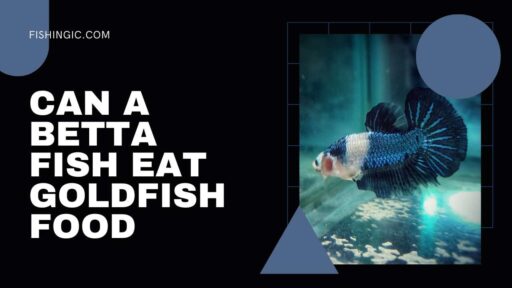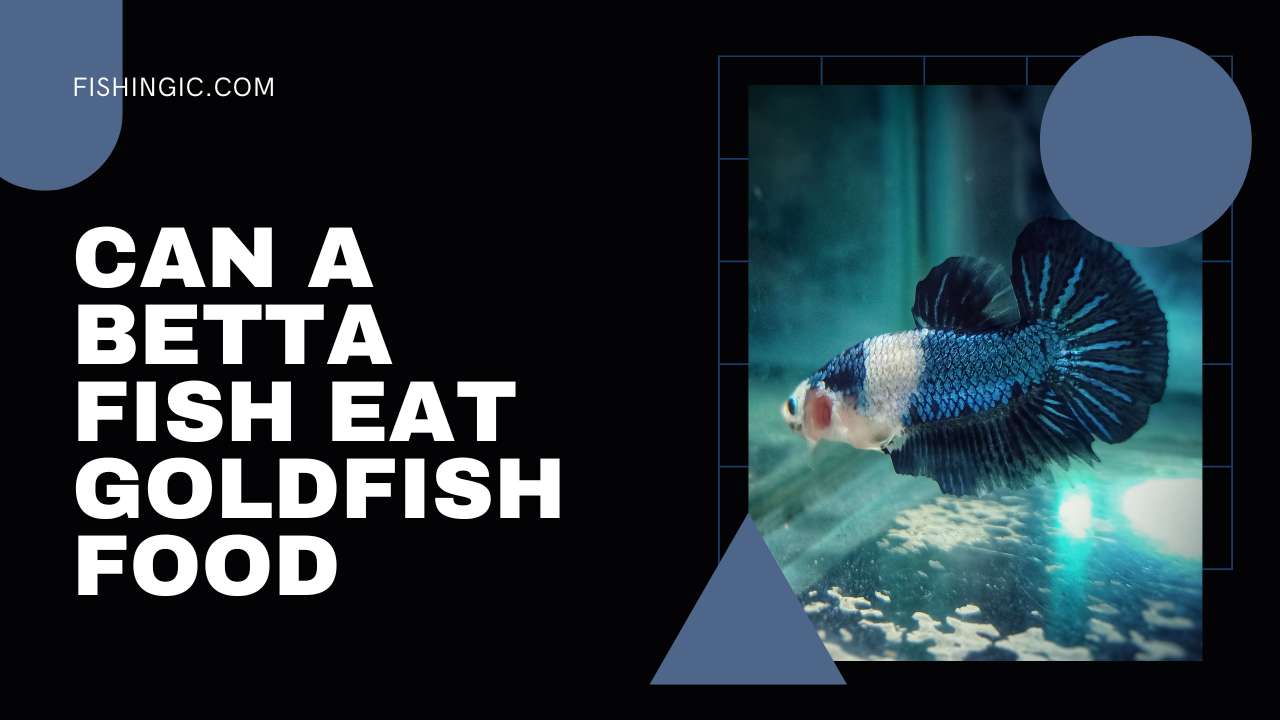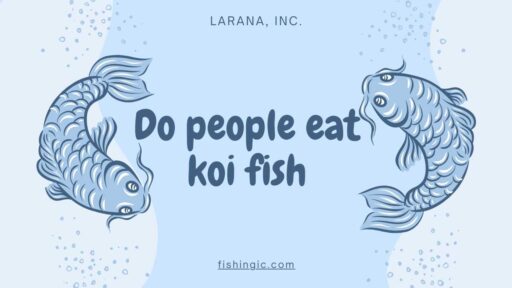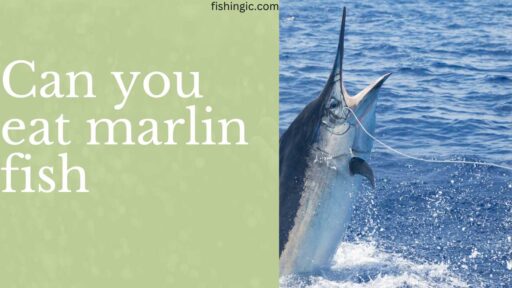Uncover the truth about feeding Can a Betta Fish Eat Goldfish Food and understand the potential consequences. Access expert advice and feeding guidelines on our website.
Introduction to can a betta fish eat goldfish food
However, while both goldfish and betta fish are fairly popular among many aquarists, their dietary needs are quite distinct. The colorful showstoppers are known for being carnivorous in nature. On the other hand, goldfish have a more diverse diet as they are regarded as omnivores. This raises the question of whether bettas can survive on food meant for goldfish or should stick to specially formulated betta chow? So let us go into the world of fish food to see if these tank mates can share meals.
Interpretation of Goldfish Food and Its Composition
On the other hand, Can a Betta Fish Eat Goldfish Food are made specifically for the nutritional requirements of these types of fish. Omnivorous animals like goldfish consume both plant matter and small animals. Therefore, their foods typically contain protein, carbohydrates, and fiber in balanced proportion. However easy it might seem to use goldfish food for feeding betta fish, it is crucial to know what it is made up of and how different it is from those that meet the dietary requirements of a betta fish.
Most brands of goldfish food contain higher quantities of vegetable materials which may not provide enough proteins to sustain a betta life cycle. Further still, some constituents such as wheat and soy found in many gold fish dietaries may be difficult for the digestive system of most imported labyrinth fishes including betas. As such, feeding only this food type may lead to nutritional deficiencies and digestion related problems.
Likely Dangers Associated with Feeding a Goldfish Diet to Betta Fish
There are several potential risks involved when feeding beta fish with food meant for gold fish. Firstly lack of sufficient protein in its diet leads to muscle wastage plus weakened immune system among beta species fed with flake foods designed for omnivorous species like Carassius auratus . Developmental processes within an organism require enough proteins so as to build tissues.
Secondly, there is a high level of carbohydrate in goldfish food that can result into bloating and constipation for the betta fish. Further more, labyrinth fishes including bettas have shorter digestive system than gold fish. Therefore, regularly feeding beta fish with food meant for other kinds of fish may lead to their digestive systems getting disrupted hence posing serious health challenges.
Lastly, goldfish diets are often packed with artificial flavors and colors that might not be safe for labyrinth fishes like your betta splendens. Some of these chemicals cause various allergic reactions or even side effects among sensitive species such as betas. As a result, you should know what the content is made up of before feeding your betta; only choose those originating from labelling directed at meeting specific nutritional requirements.
Factors to Put Into Consideration Before Feeding Goldfish Food to Betta Fish
There are several things that one needs to consider before they can settle on feeding their betta fish on goldfish food. First and foremost you need to evaluate your betta’s nutritional requirements and ensure the type of food you go for will meet these needs. Just as it was indicated earlier above, protein is very important for this species therefore when buying its diet make sure it contains enough protein.
Additionally, take into account the general well-being and state of your pet fish – if it has any underlying conditions or diet restrictions, consult a vet or aquarist professional before changing its meals. Vets understand how best you can feed your specific types based on their specialized needs; thus, seek advice from them concerning changing beta’s nourishment plan, especially if the creature suffers from diseases or has been receiving treatment prior to making adjustments in its diet.
Finally, notice the betta fish’s behavior and appetite that change after feeding them new food. If it demonstrates anxiety or apathy for goldfish food, then it is harmful to them. Always focus on the comfort of your betta fish and adapt as necessary.
Goldfish Food Alternatives for Betta Fish
However, there are other options besides Can a Betta Fish Eat Goldfish Food for a balanced diet for your betta fish. One of these popular choices includes betta pellets which are tailored specifically to meet the nutritional requirements of this species of fish. These pellets consist mostly of protein and contain vital nutrients like vitamins and minerals.
The other option is live or frozen food like bloodworms, brine shrimp and daphnia which approximates the natural diet of a Betta Fish while keeping it healthy by providing all essential nutrients for its wellbeing. Nevertheless, be sure that these foods come from reputable suppliers who would ensure that they are free from parasites or diseases.
Even so, you can also add some quality tropical fish flakes or pellets with high protein content into your betta’s diet in small amounts at certain times. Look out particularly for products without fillers, but rather ones enriched with proteins. Moreover, make sure you feed little quantities many times over to avoid overweighting them as well as getting digestion problems.
Betta Fish Feeding Practices
To maintain good health in your pet Betta Fish, there are key things you should do, such as:
- Break large meals into smaller portions when feeding your betta fish – because their stomach size is small thus, they eat less compared to most kinds of aquarium fish.
- No overfeeding: Overfeeding leads to obesity and bloating, among others. Generally, just provide enough amounts within two minutes of eating time by Bettas.
- Remove leftovers from the tank after every meal because they will go stale faster, leading to poor water quality and causing more harm than any good it might have done.
- Sometimes, use a feeding ring or dish so that food doesn’t sink to the bottom of the tank. This way, your betta fish will find its food easier.
- Following these steps will guarantee you that the right amounts are given to a Betta Fish, hence maintaining a good weight for it.
Common Misconceptions about Betta Fish and Goldfish Food
Below are some common misconceptions regarding betta fish and goldfish food.
Myth 1: All Fish Food Is the Same
Fact: The nutritional requirements of betta fish are completely different from those of goldfish. While goldfish are omnivores, bettas are carnivorous. Their diet needs should reflect this.
Betta Fish: They require food high in protein (ideally 40-50%) from sources like insects, bloodworms, and brine shrimp.
Goldfish: They need a balanced diet with protein (25-30%), carbohydrates, and some plant matter (algae, spirulina).
Myth 2: Flake Food Is the Only Choice
Fact: Although flake foods can be convenient, they shouldn’t be the sole source of nourishment. Optimal health and vibrant colors require both betta fish and goldfish to have diversified diets.
Betta Fish: Consider frozen bloodworms, brine shrimp, or daphnia as treats a few times a week.
Goldfish: Fulfill their dietary needs with pellets, brine shrimp (frozen), and algae wafers.
Misconception 3: The more food given to fish, the happier they become
Fact: Betta fish and goldfish alike are often overfed; this may affect water quality and cause obesity as well as health problems.
Feeding Frequency:
Betta fish: They should receive a small amount of food (2-3 pellets) once or twice per day.
Goldfish: Let them eat a small quantity, just enough to last for up to a couple of minutes three times per day.
Misconception 4: Tank Mates Can Share Food With Betta Fish
Truth: In case your betta fish has roommates, ensure that they are peaceful and compatible. However, even in such cases, betta fish can be aggressive and outcompete tank mates for food.
Recommendation: Provide separate meals for your tank mates or select slow-sinking food like bottom feeders.
Misconception 5: Bloodworms Must Be Fed To Betta Fish All The Time
Fact: While bloodworms are loved by betta fish, feeding them often is not advisable due to their high protein content, which causes health problems. Maintain diversity in their diet by feeding multiple kinds of foods instead.
By avoiding these misconceptions and becoming aware of the dietary needs of your betta or goldfish, you can ensure that they receive the right diet for a healthy and vibrant life.
Tips for Transitioning Betta Fish to a New Diet
If you have been giving your betta fish goldfish food and want to change its diet, then it’s important that you do it gradually. A sudden shift in their menu will affect the digestion system, resulting in stress-related conditions among betas. Below are tips on how best you can switch the formula:
Start by blending small portions of new meal together with what it was normally eating. This way, your betta will slowly become accustomed to the new food and adjust itself accordingly.
Gradually reduce the amount of goldfish food while increasing that of the new one. Monitor your betta’s progress and adjust the rate of transition according to his behavior during this time.
Be patient. It might take a while for your betta fish to completely warm up to the new diet. There should be variety in their diet so that they do not get bored.
Throughout the period of change, monitor your betta’s health and behavior closely. If there are any signs of discomfort or loss of appetite, contact a vet or an aquatic specialist for assistance.
Other Foods That Betta Fish Can Safely Consume
Besides pellets for bettas, live/frozen foods, and quality tropical flakes/pellets, other safe foods include:
Freeze-dried bloodworms and brine shrimp – these are convenient alternatives which keep most nutrients contained in live feeds.
Fresh or boiled vegetables like peas, spinach, and zucchini promote fiber content and help with digestion in beta fish.
Serving them with small pieces of melon or berries among fruits can be done occasionally as treats that provide vitamin E and antioxidants.
Introduce such diets slowly and moderately to avoid digestive complications as well as nutrient deficiencies.
FAQs
Can betta fish eat goldfish flakes?
Technically, betta fish could potentially eat goldfish flakes, but this is not advisable as their main diet. This is because they have a low protein content and can lead to malnutrition in betta fish.
How often should I feed my betta fish?
Betta fishes are supposed to be fed with small meals several times a day, about 2-3. Keep an eye on their appetite and alter the quantity of food accordingly.
Can betta fish eat human food?
While bettas can partake in some human foods, they should not be given foods that are high in salt, sugar or synthetic chemical components. It is better to stick with those which are formulated for them alone so as to meet all their nutritional needs.
Can betta fish eat goldfish pellets?
Goldfish pellets cannot serve as a major meal for the Siamese fighting fish due to lack of enough protein, which might lead to digestion problems when ingested by beta fish.
Conclusion: Making the Right Choice for Your Can a Betta Fish Eat Goldfish Food
In conclusion, although it’s safe for betta fish to technically eat Can a Betta Fish Eat Goldfish Food once in a while, it should never be used as their staple diet. Goldfish food doesn’t contain adequate protein and other essential elements that are necessary for the well-being of betas. Regular feeding them with goldfish food causes malnourishment characterized by digestive problems among others.
Instead opt for live/frozen foods such as bloodworms & daphnia or high quality tropical flake/pellets available specifically formulated for Bettas. These alternatives offer balanced nutrition which meets dietary requirements giant Siamese fighters want from these products.
Always watch your Siamese fighter’s behavior and appetite; use a vet/ aqua specialist if required while ensuring proper feeding techniques to keep your pet healthy. Choose wisely and vary their meals to make your Siamese fighter flourish in its vivid coolers and graceful moves.






